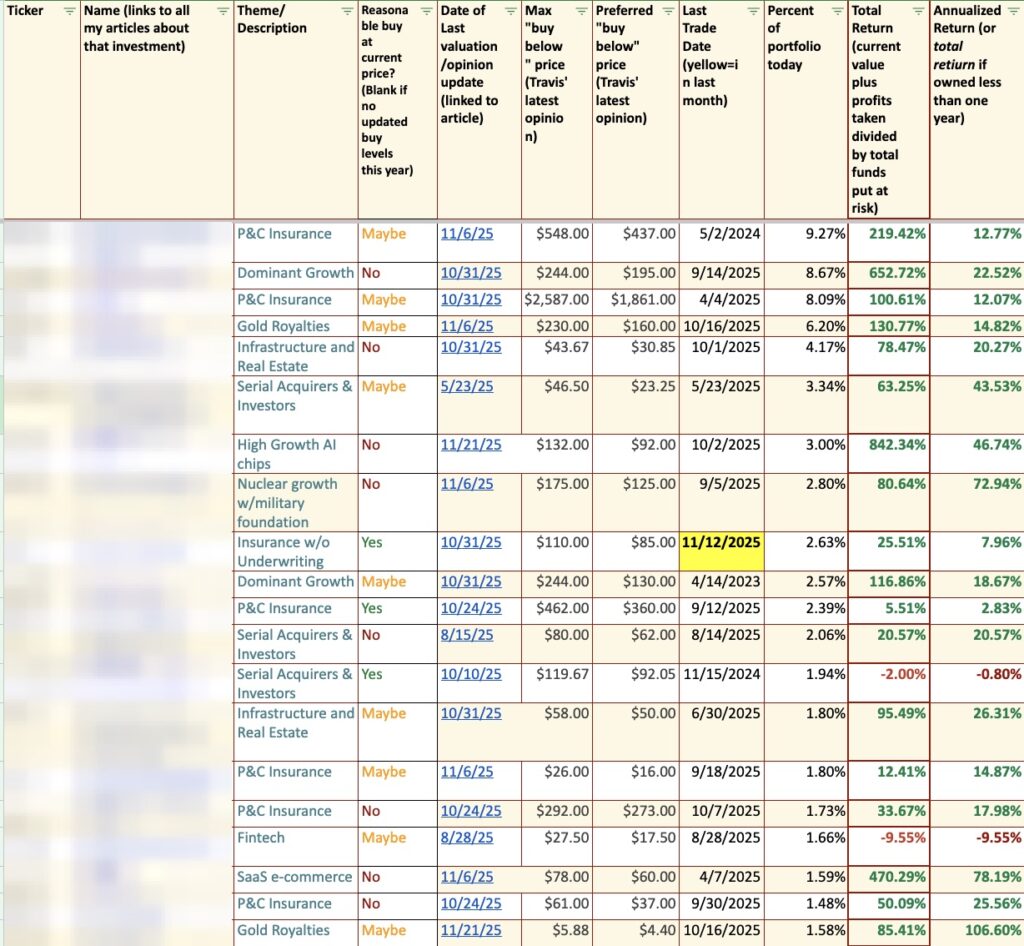There are a number of factors you need to consider when choosing your crypto investing platform, the most important of which are:
- Security
- Reputation
- Trading fees
- User experience
- Supported cryptocurrencies
While every platform has its own pros and cons, Coinbase is the only platform which ranks in the top 1-3 in all of the above categories.
Most importantly, Coinbase has the most sophisticated set of security features and, because it’s a public company, is regulated much more closely than every one of its competitors.
For these reasons, Coinbase is my most recommended brokerage for new and casual crypto investors. Keep reading for a complete breakdown of its feature set, pros and cons, security measures, and fee structure.
Review: At-a-Glance
Our rating: [4.5 stars]
Account minimum: $0
Fees: 0 – 3.99%, depending on type of transaction
Primary benefit: Easy-to-use and secure platform
Primary drawback: Higher fees than some of its competitors
Promotion:
Get up to $200 free in any crypto when you join Coinbase today
About Coinbase
More than $76 billion was traded on the platform last quarter, making Coinbase the largest crypto exchange in the United States. How did it get here?
Brian Armstrong (an ex-Airbnb engineer) and Fred Ehrsam (a former Goldman Sachs trader) co-founded Airbnb in 2012. The two met over Reddit and formed the company out of a two-bedroom apartment when Bitcoin was trading for $6.
Their founding mission was to “make crypto easy to use.”
The company had its initial public offering (IPO) on April 14, 2021. It listed its shares at $250, but its stock opened trading at $381 per share. This valued the company at $99.6 billion.
Today, Coinbase is valued at (a much more reasonable) $30 billion. It has:
- 100+ million users
- $114 billion invested on the platform
- 248 cryptocurrencies available for trading
It is one of the most popular, most secure, and easiest-to-use crypto exchanges in the world.
Get up to $200 free in any crypto when you join Coinbase today
Pros and Cons of Coinbase
As you can tell from the numbers listed above, Coinbase is one of the most popular crypto investing platforms in the world.
Obviously, for millions of crypto investors, Coinbase is the best available option.
Pros
- User experience – Coinbase makes buying and selling cryptocurrencies incredibly easy, even for complete beginners. Both its mobile app and web-based platform are exceptionally well designed. Additionally, users can easily link their bank accounts and make quick deposits and withdrawals.
- Security – Coinbase places an emphasis on security and uses industry-leading practices such as advanced two-factor authentication (2FA), offline (cold) storage, and bank-level encryption. I cover its security features in more depth below (and in my article on Is Coinbase Safe?).
- Reputation – While it has been the target of several attacks and the site has experienced outages, Coinbase is considered one of the most trustworthy exchanges in the crypto landscape.
- Additional regulation – Coinbase is the only publicly-traded crypto exchange in the world. This brings with it additional reporting regulations, including SEC oversight, quarterly reports, and independent audits conducted annually.
- Educational resources – Coinbase also has a library of resources to deepen its users’ knowledge of the crypto space and will reward you for completing courses.
Cons
- High fees – The biggest criticism against Coinbase is its relatively high fees relative to some of its lower cost competitors. Fees can include trading fees, withdrawal fees, and transaction fees. I cover all of these in more detail below.
- Lacks niche coins – While Coinbase currently offers 248 coins, it lacks a good portion of altcoins that other exchanges may have.
- Geographical restrictions – Coinbase is not licensed to operate in or has restrictions in several countries. Additionally, there are several countries banned from using Coinbase including North Korea, Iran, Syria, Cuba, and Crimea.
Products
Coinbase is available to both retail and institutional-level investors.
It has 3 primary offerings:
- Coinbase platform – The website and mobile app where you can buy, sell, store, and stake cryptocurrencies.
- Coinbase Pro – A more sophisticated version of the platform for day traders.
- Coinbase Wallet – A place for users to store their crypto investments.
Additionally, it offers Coinbase Prime (a trading platform) and Coinbase Custody (a custody solution) for institutional clients.
Cryptocurrencies Available on Coinbase
Coinbase is always adding more cryptocurrencies to its platform. As of the time of this writing, it supports 248 coins.
Some of the most popular are: Bitcoin (BTC), Ethereum (ETH), Tether USD (USDT), Cardano (ADA), Solana (SOL), Polkadot (DOT), USD Coin (USDC), Dogecoin (DOGE), Uniswap (UNI), Litecoin (LTC), Shiba Inu (SHIB), Stellar Lumens (XLM), Polygon (MATIC), among others.
While it doesn’t post exact listing requirements, it is speculated Coinbase adds coins based on trading volume and popularity.
Is Coinbase the Safest Crypto Exchange?
As mentioned above, Coinbase is considered one of the safer and more reputable crypto exchanges.
This is due to a combination of its suite of security features and the regulation and reporting requirements it faces due to being a US-based and publicly-traded company.
That said, there is no exchange that is completely immune to risks. Coinbase, like every crypto exchange, has its own set of pros and cons when it comes to security.
Pros of Coinbase’s Security
- Advanced security measures – Coinbase deploys 2FA, bank-level encryption, password protection, offline (cold) storage for the majority of assets, AI and machine-learning monitoring, and other account protections.
- Regulatory compliance – As a publicly-traded brokerage based in the United States, Coinbase is subject to a swathe of SEC regulations. These include quarterly reporting, operational transparency, and annual audits conducted by an independent third party.
- Insurance coverage – Coinbase provides insurance coverage for digital assets held on the platform in the event of a security breach.
- User base – Unlike some smaller exchanges, the size of Coinbase’s user base adds liquidity and reduces the risk of market manipulation.
Cons of Coinbase’s Security
- Centralization – While all user data is encrypted and algorithmically stored, Coinbase is a centralized exchange, meaning users’ private keys are stored in its offline databases.
- Identity verification – As a US-based brokerage, Coinbase must require its users to verify their identities, which may be a concern for those who prioritize privacy and anonymity.
While there’s no such thing as a perfect system, Coinbase is about as safe of a crypto exchange as is possible.
You can enhance the security of your investments by following several best practices, such as using strong passwords, enabling 2FA, and using hardware wallets for long-term storage of your crypto assets.
Get started today on Coinbase
Coinbase Fees
Coinbase charges fees for a variety of transactions and services on its platform.
These include:
- Transaction fees – Coinbase charges fees on buying, selling, and conversion transactions. These fees are calculated at the time of your order and vary depending on your payment method, order size, market conditions, location, and other costs. You will be shown the total amount of fees you will pay prior to placing your order. These fees typically range from 0.5% to 4.5%.
- Withdrawal fees – Depending on your withdrawal method, Coinbase may charge a fee for withdrawing funds from your account.
- Deposit fees – Coinbase does not typically charge fees on deposits, but may do so depending on the payment method.
- Other – Depending on your location and the services you use, there may be additional fees associated with features such as staking, Coinbase Card usage, and other premium services.
It also charges a maker/taker fee model for Coinbase Pro, its advanced trading platform. Your fee tier is based upon total USD trading volume over the trailing 30-day period.
Here’s a look at the tiered breakdown:
Frequently asked questions
Can Coinbase be trusted?
Yes, Coinbase can be trusted.
The platform has some of the most advanced security measures available to protect your personal data and your investments including 2FA, bank-level encryption, and cold wallet (offline) storage, among others.
Additionally, the company operates in the U.S. and is under its laws and jurisdiction. Plus, the company is publicly traded, subjecting it to a host of other regulations which require regular reporting, annual audits, and general business transparency – something that is severely lacking in the crypto landscape.
Review for yourself whether Coinbase is safe enough for investors looking to buy bitcoin, ethereum, and over 250+ crypto’s offered on their platform.
Is there a downside to Coinbase?
The primary drawback to Coinbase is its fees are higher than some of its low-cost competitors.
That said, in my opinion, the simple user interface, top-notch platform security, large list of tradable assets, and educational resources are well worth paying marginally higher fees.
Does Coinbase really pay you?
There are a few ways to make money on Coinbase, including 1) Sign up rewards (like the one through our links), 2) Coinbase’s Learn and Earn program will reward you with small amounts of cryptocurrencies for completing their educational materials, 3) Staking certain cryptocurrencies and earning rewards, and 4) Selling your investments for more than you bought them for.
Final word: Is Coinbase Right for You?
Coinbase should no doubt be on your list of platforms to invest in crypto, especially if you’re a new or casual investor.
Its wide range of cryptocurrencies to invest in, its top-notch security measures, and the ease at which you can buy and sell combine to make it one of the best all-around offerings available.
Sure, you may find an exchange with lower fees or more niche tokens, but if you’re looking to get started investing in crypto, Coinbase is the best place to start.
Get started today on Coinbase














